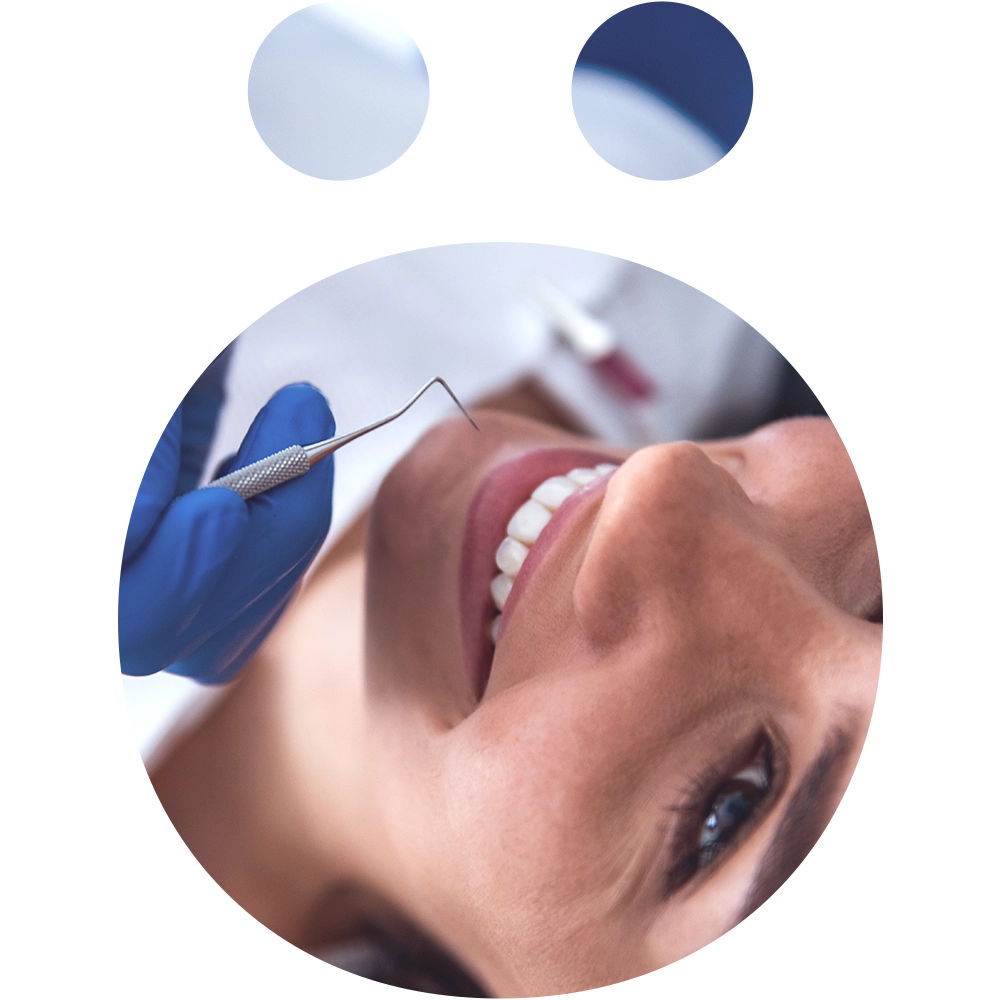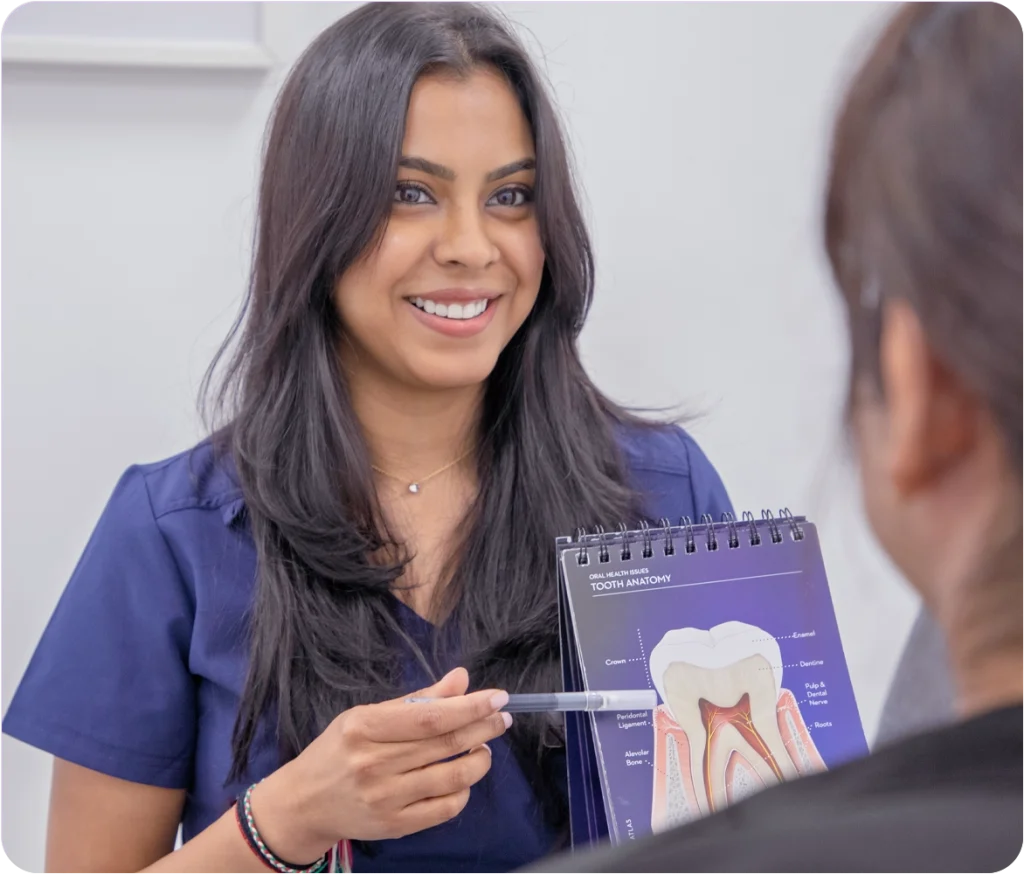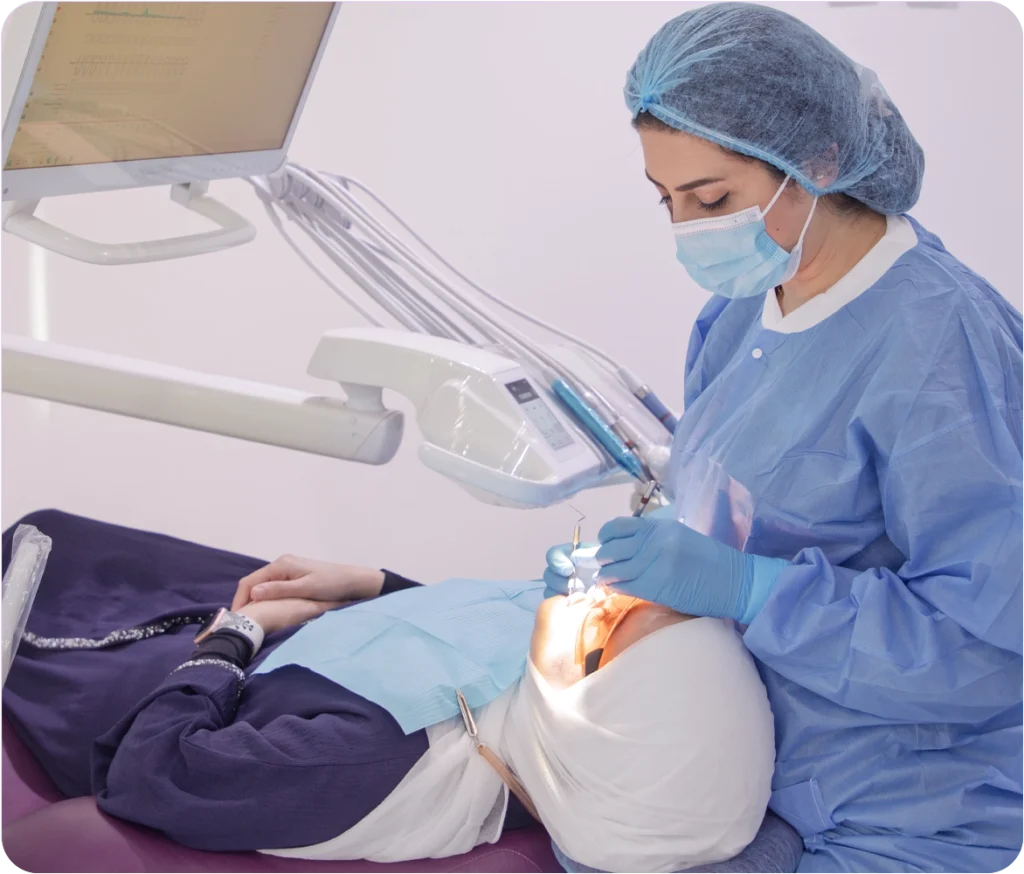Dental Hygiene Services
At Snö Dental Clinics, we prioritize preventative care for your oral health. Our experienced dental hygienists are dedicated to preserving the health of your gums and teeth with comprehensive cleanings, detailed gum assessments, and teeth whitening services that enhance your smile. We guide you throughout your treatment to ensure optimal oral hygiene and a brighter, healthier smile.


Understanding Dental Hygiene and Gum Health
A healthy smile begins with healthy gums. Our dental hygiene services are designed to keep your gums firm and free of inflammation. Regular visits every 3 to 6 months allow us to monitor your gum and tooth health, helping you maintain long-term oral wellness
What to Expect
- Gum Health Evaluation: We measure the gum pockets around your teeth to detect early signs of gum disease and assess overall gum health. This is called periodontal charting.
- Comprehensive Cleaning: Using advanced ultrasonic devices and hand instruments, we thoroughly remove plaque and tartar. Afterward, we polish your teeth for a smooth, bright finish.
- Personalized Care Tips: We provide customized advice on brushing, flossing, and other preventive practices tailored to your unique oral health needs.
- In-Office Teeth Whitening: Our Zoom Philips treatment delivers a noticeable brightness in just one 120-minute session.
- At-Home Whitening Kits: With custom trays and Opalescence gel, you can whiten your teeth gradually and comfortably at home.

Why Choose Us?
Expert Cleaning
Our skilled dental hygienists deliver thorough cleanings customized to your gum health needs.
Healthy Gum
We focus on preventing gum disease and maintaining the health of your gums.
Personalised Care
All treatments and advice are tailored to your individual oral health requirements.
For more information or to schedule a consultation, contact our clinic today. We are committed to providing exceptional care and ensuring your complete satisfaction.